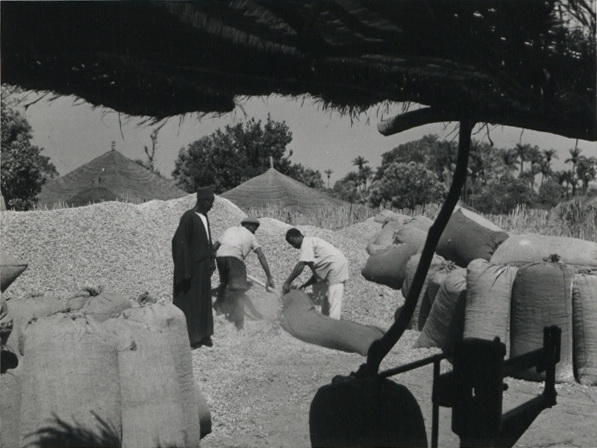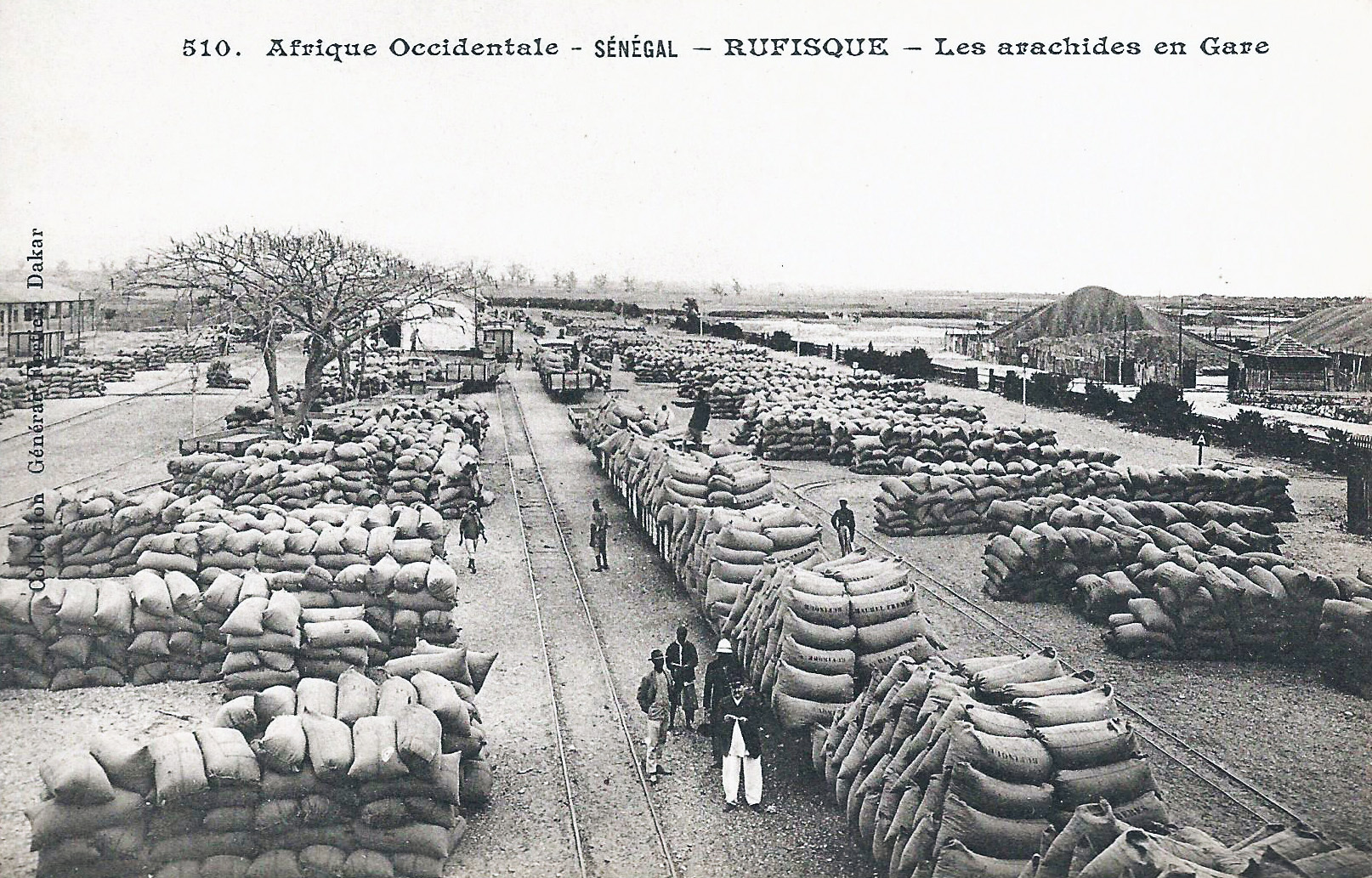Mamadou Mane et al.
Mamadou Mane and his fellow interviewees live in the Guinea-Bissau border town of Canquelifa , the last border post before entering Senegal. I spoke to six of them in April 2017 about life in the town. Some of them remembered doing forced labor and having to walk nearly 15 miles to participate in forced labor projects. People were forced to supply the colonial district head with wood, eggs, and milk, whatever they needed. They would also carry him from village to village within his territory. During the colonial period, they suffered under heavy taxes, and you needed to sell your crops, livestock, and anything else you had in order to pay them. This is why people left for Senegal to harvest peanuts seasonally. They would buy things unavailable here and pay their families’ taxes upon returning.
During the war for independence, the town was split between those who fought for the Portuguese and those who fought for the PAIGC. However, that did not stop Canquelifa from being attacked by the PAIGC. Many fled to Senegal during the war to escape the violence of the conflict. After the war, they said Luis Cabral’s government helped people by supplying them with rice, but also arrested former Portuguese soldiers. Mama Seyni Mane, one of the people I spoke with, his uncle was killed by the PAIGC.
Since the war ended, there are much stronger connections across the border. The development of large, cross-border markets in both Guinea-Bissau and Senegal have created greater ties between the two countries. In recent years, more people have begun to marry across the border, furthering family ties between both countries.
Interview
During the colonial period, were people here used to going to Senegal?
Yes. They went to Senegal often. We went.
What were you looking for?
We would harvest peanuts during the harvest season, then we would get paid and come back.
Can’t you grow peanuts here? Why would you harvest them there?
We would go to search [for money]. Here we farmed rice, we farmed millet, then we would leave it with our parents and go to harvest peanuts. We harvested, we threshed, then we would be paid and come back.
At that time, was money more prevalent in Senegal?
At that time, the money in Senegal was very powerful; you could get 10,000 or 15,000 francs that was a lot of money. Here if you had 5,000 that was a lot.
What would you buy with the money you got?
I would buy clothes and a bicycle and come back.
At that time were there bicycles here [in Guinea-Bissau]?
Bicycles? At that time there were not bicycles here. Only in Senegal. When we had money we were also able to pay taxes. You would give the money to your father and he would pay the family’s taxes.
Did Senegalese people come here too or not?
No, they didn’t come here. We went there.
Did people use to go in the Gambia too or only Senegal?
We were only Senegal. We did not know Gambia at the time, only Senegal. It was in Senegal that we went to look [for cash] and come back.

